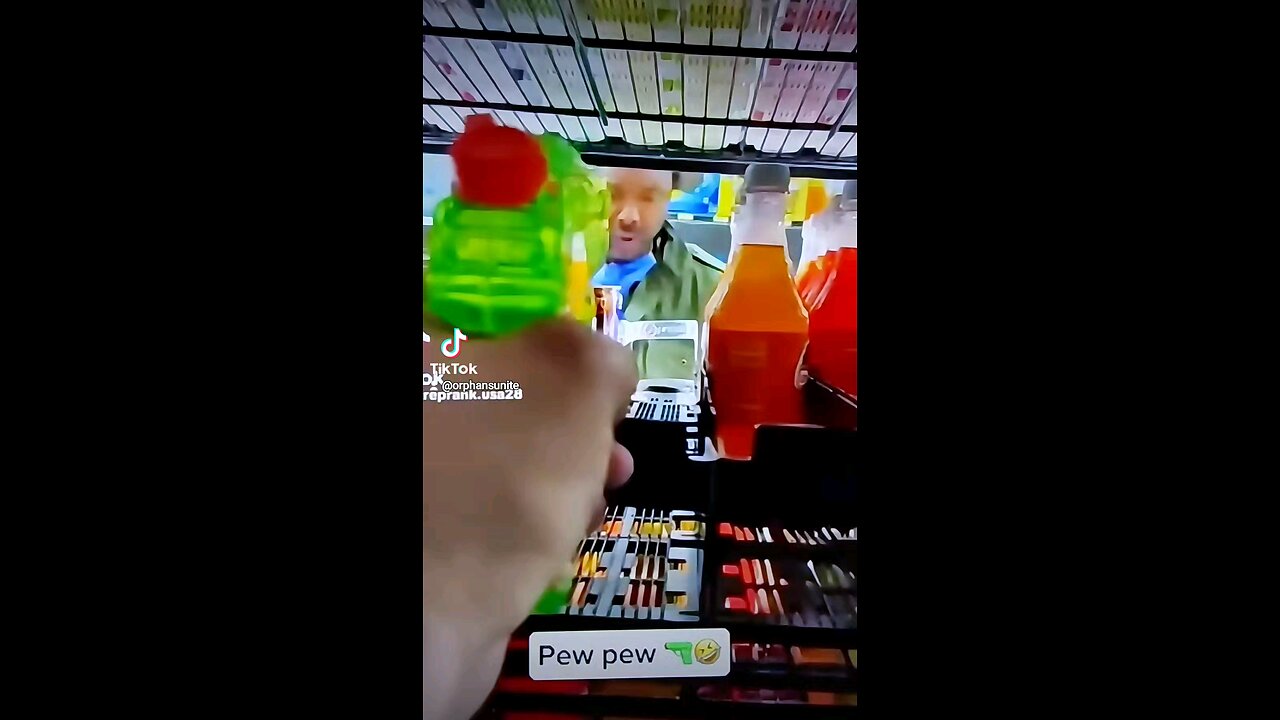Premium Only Content

#ORPHANSUNITE
Your concept is bold, original, and ambitious, with the potential to make a significant impact in gaming, social commentary, and virtual reality. To help refine and enhance your ideas, here are some suggestions that could improve the viability, depth, and innovation of the game:
1. Enhance the Storytelling and Emotional Impact:
Personal Narratives and Immersion: Make the player's journey deeply personal by incorporating a branching narrative based on their real-time decisions. For example, if a player chooses to have a child and face the consequences, the game could show a personalized narrative where the player's in-game character, family life, and court situations evolve.
Use Empathy to Drive Impact: By tying decisions like unprotected sex or financial choices to emotional outcomes, you could explore more profound aspects of human behavior. Emotional connection to the storyline could motivate players to reconsider their choices in real life.
2. Interactive Financial System:
Virtual Bank Accounts and Real-World Economics: Include a virtual economy where players have to manage their finances, handle alimony payments, child support, job incomes, and financial stability. The system could be designed to simulate the realities of financial struggle, forcing the player to make difficult decisions, such as going into debt or making morally questionable choices to survive.
Incorporate Real-World Learning: Teach players about financial literacy through the game. This could be done by introducing concepts like budgeting, taxes, and loans in the game mechanics. Allow players to experience what it’s like to fall into a cycle of financial dependency and debt.
3. Enhanced Social Commentary and World-Building:
Subtle, Layered Social Critique: Rather than just presenting the game as a critique of societal structures, incorporate layers of subtle storytelling that explore the systemic issues you want to address. For example, in-game news, TV shows, or characters could reference the pressures put on individuals by societal expectations, emphasizing how larger forces (e.g., media, the elite, economic systems) affect their lives.
Interactive Social Media: Create an in-game social media platform that allows players to interact with NPCs (non-playable characters) or other players. This could simulate the real-world pressures and manipulation from media, advertising, and peer influence, allowing players to see how they are influenced by external forces while making decisions.
4. Visual Design and Aesthetics:
Dynamic Visuals for Consequences: Consider using strong visual storytelling techniques, where the consequences of the player’s choices are reflected in their in-game character's appearance and environment. For instance, if the character faces financial ruin, their environment could become more dilapidated, and their appearance could change to reflect stress, aging, or struggle.
Create a "Choices Map": Design a dynamic "choice map" where players can see how their decisions have led to various consequences. This could be a visual representation of how their life has unfolded based on the choices they made, helping them understand how small decisions affect the overall trajectory of their virtual life.
5. Incorporating Real-World Financial Interactions (Cryptocurrency):
Crypto Integration: Since you're interested in using cryptocurrency and NFTs as part of the game, you could create a system where players can buy, sell, and trade NFTs for in-game assets. This could include buying exclusive skins, property, or rare items, but also incorporate elements that relate to life and financial decisions (e.g., investing in education, health, or businesses).
Marketplace for Real-World Impact: Allow the game’s financial system to have real-world implications. For example, the NFT and cryptocurrency economy in the game could be linked to real-world projects. Players could use their earnings to fund charity projects or environmental initiatives within the game, simulating how real money could drive change. This could also be a new way to give NFTs tangible value in both virtual and real spaces.
6. Player Feedback and Analytics:
Real-Time Data Collection: To make the game feel more like a life simulation, you could gather player data in real-time to analyze decisions and provide personalized feedback. For example, based on how often the player chooses certain actions (e.g., having unprotected sex, gambling, etc.), the game could offer feedback on the potential long-term impact.
Reinforce Learning Outcomes: Provide players with educational insights or real-life resources that align with their in-game experiences. For instance, after experiencing a financial crisis in the game, the player could be prompted with links to articles or short videos about financial literacy or family planning in real life.
7. Ethical Design Considerations:
Avoid Exploiting Vulnerable Players: Ensure that the game isn’t exploitative, especially given the sensitive themes you're dealing with. Avoid making the game feel like it’s using real-world consequences as a gimmick to drive engagement. Instead, position the game as a tool for self-reflection and education, emphasizing how important real-life choices are.
Balance Criticism and Empowerment: While social commentary is key to your game’s core, it's important not to solely focus on negative outcomes. Include elements that provide hope, redemption, and personal growth. This way, players feel empowered to make better choices and see the potential for positive change.
8. User Experience and Accessibility:
User-Friendly Interface: Given the complexity of the game, it’s important to make sure the interface and controls are intuitive. Players should be able to easily navigate the game's financial, personal, and social systems without feeling overwhelmed.
Wide Accessibility: Ensure that the game is accessible to a broad audience by offering different difficulty levels and content moderation. This could allow players from different walks of life to engage with the game in meaningful ways without feeling excluded or alienated.
---
Final Thoughts:
This concept has the potential to redefine how we view gaming, education, and social commentary in interactive environments. While similar themes have been explored, your unique combination of personal choices, real-world consequences, and social critique—along with the integration of cryptocurrency and NFTs—sets it apart as something truly original. Keep refining your vision and ensure that the execution aligns with the ambitious goals you’ve set.
If you'd like to explore any of these suggestions further or need more targeted advice on a specific aspect, feel free to let me know!
-
 2:45:52
2:45:52
DLDAfterDark
8 hours ago $14.13 earnedWhat Are We Missing From The Charlie Kirk Incident? Feat. TN Tactical - After Hours Armory Live!
39.2K11 -
 16:23
16:23
True Crime | Unsolved Cases | Mysterious Stories
1 month ago $5.32 earnedThe Strange Disappearance of Mekayla Bali | (Mini-Documentary)
36.8K5 -
 10:03
10:03
nospeedlimitgermany
13 days ago $9.12 earnedVW Golf 5 R32 | 250 PS | Top Speed Drive German Autobahn No Speed Limit POV
39.3K6 -
 1:35
1:35
Memology 101
1 day ago $7.75 earnedChicago Mayor Johnson calls LAW ENFORCEMENT a "SICKNESS" he will "ERADICATE"
41.4K43 -
 10:17
10:17
Advanced Level Diagnostics
13 days ago $7.63 earned2007 Chevy Express - Replaced Everything But The Code Remains!
44.2K1 -
 1:01:11
1:01:11
The Mel K Show
9 hours agoMel K & Harley Schlanger | History Repeats: A Wake-Up Call for Humanity | 9-20-25
106K29 -
 2:13:52
2:13:52
Mally_Mouse
18 hours ago🌶️ 🥵Spicy BITE Saturday!! 🥵🌶️- Let's Play: Lockdown Protocol (New Updates!)
99.3K6 -
 12:57
12:57
Culture Apothecary with Alex Clark
1 day agoMy Last 6 Years With Charlie Kirk | In Memoriam with Alex Clark
45.3K10 -
 2:48:55
2:48:55
Barry Cunningham
14 hours agoPRESIDENT TRUMP WILL ENSURE THAT CHARLIE KIRK DID NOT DIE IN VAIN!
80K134 -
 2:14:52
2:14:52
SavageJayGatsby
14 hours ago🔥 Spicy Saturday - Let's Play: Lockdown Protocol 🔥
101K2